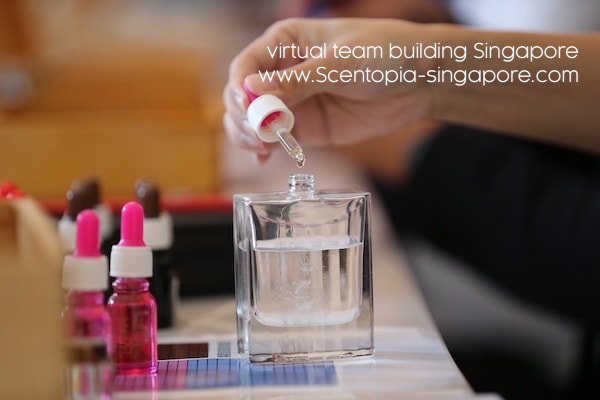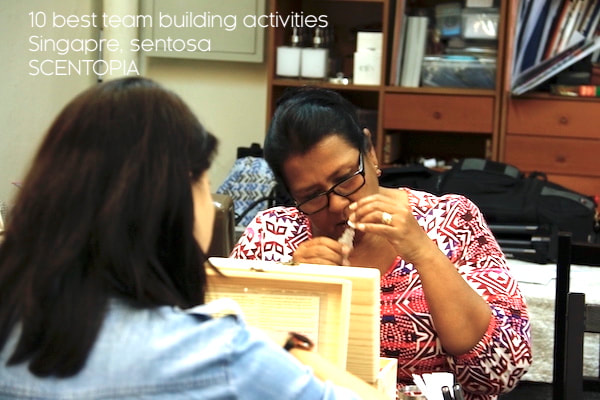Crafting Perfumes with Citronella Essence
The history of perfumery dates back to ancient civilizations, where fragrances were used for religious ceremonies and personal grooming. The ancient Egyptians were known for their use of perfumes and scented oils, and they also developed the art of perfumery through the use of aromatic plants and natural resources. The ancient Greeks and Romans also used perfumes for personal grooming and in religious ceremonies.
In the Middle Ages, perfumery was developed further by the Arabs and Europeans, who used perfumes for both personal and medicinal purposes. With the advent of modern chemistry in the 19th century, synthetic ingredients were developed, which allowed for the creation of a wider range of fragrances. Today, perfumery is a multi-billion dollar industry, with perfumes being used for personal grooming, as well as in the fashion and cosmetic industries.
In the Middle Ages, perfumery was developed further by the Arabs and Europeans, who used perfumes for both personal and medicinal purposes. With the advent of modern chemistry in the 19th century, synthetic ingredients were developed, which allowed for the creation of a wider range of fragrances. Today, perfumery is a multi-billion dollar industry, with perfumes being used for personal grooming, as well as in the fashion and cosmetic industries.
Benefits of Citronella in Perfume
Perfume has a long history in ancient Egypt, where it was used for both practical and religious purposes. The ancient Egyptians believed that fragrances had the power to purify and protect the body, as well as to attract the gods. They also used perfumes in the embalming process of their dead.
Fragrances were produced by grinding aromatic plants and resins with a mortar and pestle, and then mixing the resulting powder with oil or fat to create a paste. This paste was then applied to the skin or burned as incense.
The most popular perfumes in ancient Egypt were made from ingredients such as myrrh, frankincense, and cedar. These ingredients were also used in religious rituals and were highly valued for their spiritual properties. The god of perfume, Nefertum, was believed to have been born from a blue lotus flower and was associated with beauty, rejuvenation, and the rising sun.
Egypt was also one of the main producers of perfumes and scented oils in the ancient world and exported them to other countries. The perfumes and scented oils were used not only for personal grooming but also for medicinal purposes.
In short, the ancient Egyptians had a deep understanding and appreciation for the power of scent and perfumery played an important role in their culture, religion, and daily lives.
Fragrances were produced by grinding aromatic plants and resins with a mortar and pestle, and then mixing the resulting powder with oil or fat to create a paste. This paste was then applied to the skin or burned as incense.
The most popular perfumes in ancient Egypt were made from ingredients such as myrrh, frankincense, and cedar. These ingredients were also used in religious rituals and were highly valued for their spiritual properties. The god of perfume, Nefertum, was believed to have been born from a blue lotus flower and was associated with beauty, rejuvenation, and the rising sun.
Egypt was also one of the main producers of perfumes and scented oils in the ancient world and exported them to other countries. The perfumes and scented oils were used not only for personal grooming but also for medicinal purposes.
In short, the ancient Egyptians had a deep understanding and appreciation for the power of scent and perfumery played an important role in their culture, religion, and daily lives.
The Science Behind Citrus Aromatherapy
Perfume also had a significant role in ancient Mesopotamia, where it was used for both practical and religious purposes. The Mesopotamians used perfumes in rituals and ceremonies, as well as for personal grooming.
Fragrances were produced by extracting essential oils from plants and flowers through methods such as steam distillation. These oils were then mixed with other ingredients to create perfumes and unguents (scented ointments).
The most popular perfumes in ancient Mesopotamia were made from ingredients such as cedar, myrrh, and cypress. These ingredients were also used in religious rituals and were highly valued for their spiritual properties. In Mesopotamia, it was believed that the gods enjoyed pleasant smells and that the use of perfumes could please the gods and bring good luck.
Like in Egypt, Mesopotamia was also known for its perfumes and scented oils and exported them to other countries. The perfumes and scented oils were used not only for personal grooming but also for medicinal purposes.
In summary, perfumery played an important role in ancient Mesopotamia culture, religion and daily lives. The Mesopotamians had a deep understanding and appreciation for the power of scent and believed that the use of perfumes could please the gods and bring good luck.
Fragrances were produced by extracting essential oils from plants and flowers through methods such as steam distillation. These oils were then mixed with other ingredients to create perfumes and unguents (scented ointments).
The most popular perfumes in ancient Mesopotamia were made from ingredients such as cedar, myrrh, and cypress. These ingredients were also used in religious rituals and were highly valued for their spiritual properties. In Mesopotamia, it was believed that the gods enjoyed pleasant smells and that the use of perfumes could please the gods and bring good luck.
Like in Egypt, Mesopotamia was also known for its perfumes and scented oils and exported them to other countries. The perfumes and scented oils were used not only for personal grooming but also for medicinal purposes.
In summary, perfumery played an important role in ancient Mesopotamia culture, religion and daily lives. The Mesopotamians had a deep understanding and appreciation for the power of scent and believed that the use of perfumes could please the gods and bring good luck.
Energizing Aromas for Every Occasion
Perfume also had a significant role in the ancient Indus Valley civilization, which existed in present-day Pakistan and northwest India around 3300 - 1300 BCE. The Indus Valley civilization is considered one of the earliest urban civilizations in the world, and evidence suggests that they had a sophisticated understanding of perfumery.
Fragrances were produced by extracting essential oils from plants and flowers through methods such as steam distillation. These oils were then mixed with other ingredients to create perfumes and unguents (scented ointments).
The most popular perfumes in ancient Indus Valley were made from ingredients such as sandalwood, myrrh, and cinnamon. These ingredients were also used in religious rituals and were highly valued for their spiritual properties.
In the Indus valley civilization, perfumes were used for personal grooming, as well as for religious and ceremonial purposes. Perfumes and scented oils were also used in medicinal practices.
Unfortunately, the writing system of Indus Valley civilization has not been fully deciphered, so there is not much known about the myths and religion of this civilization. However, it is clear that perfumery played an important role in their culture and daily lives.
In summary, perfumery played an important role in ancient Indus valley civilization, where it was used for both practical and religious purposes. The Indus Valley people had a sophisticated understanding of perfumery and used perfumes and scented oils for personal grooming, religious and ceremonial purposes and medicinal practices.
Fragrances were produced by extracting essential oils from plants and flowers through methods such as steam distillation. These oils were then mixed with other ingredients to create perfumes and unguents (scented ointments).
The most popular perfumes in ancient Indus Valley were made from ingredients such as sandalwood, myrrh, and cinnamon. These ingredients were also used in religious rituals and were highly valued for their spiritual properties.
In the Indus valley civilization, perfumes were used for personal grooming, as well as for religious and ceremonial purposes. Perfumes and scented oils were also used in medicinal practices.
Unfortunately, the writing system of Indus Valley civilization has not been fully deciphered, so there is not much known about the myths and religion of this civilization. However, it is clear that perfumery played an important role in their culture and daily lives.
In summary, perfumery played an important role in ancient Indus valley civilization, where it was used for both practical and religious purposes. The Indus Valley people had a sophisticated understanding of perfumery and used perfumes and scented oils for personal grooming, religious and ceremonial purposes and medicinal practices.
Why Choose Scentopia Singapore for Natural Fragrances
Perfume also had a significant role in ancient Greece, where it was used for both practical and religious purposes. The Greeks used perfumes in rituals and ceremonies, as well as for personal grooming.
Fragrances were produced by extracting essential oils from plants and flowers through methods such as steam distillation. These oils were then mixed with other ingredients to create perfumes and unguents (scented ointments).
The most popular perfumes in ancient Greece were made from ingredients such as frankincense, myrrh, and rose. These ingredients were also used in religious rituals and were highly valued for their spiritual properties. In Greek mythology, the gods were believed to have a keen sense of smell and were said to enjoy pleasant smells.
Perfumes were also used in the beauty and grooming rituals of both men and women. The Greek philosopher Aristotle wrote that "to be with perfumes is a part of a happy life."
Perfumes and scented oils were also used in medicinal practices. Greek physician Galen wrote extensively about the therapeutic properties of scents and their use in medicine.
In summary, perfumery played an important role in ancient Greek culture, religion, and daily lives. The Greeks had a deep understanding and appreciation for the power of scent and believed that the use of perfumes could please the gods and bring good luck. They also used perfumes in beauty and grooming rituals and for medicinal purposes.
Fragrances were produced by extracting essential oils from plants and flowers through methods such as steam distillation. These oils were then mixed with other ingredients to create perfumes and unguents (scented ointments).
The most popular perfumes in ancient Greece were made from ingredients such as frankincense, myrrh, and rose. These ingredients were also used in religious rituals and were highly valued for their spiritual properties. In Greek mythology, the gods were believed to have a keen sense of smell and were said to enjoy pleasant smells.
Perfumes were also used in the beauty and grooming rituals of both men and women. The Greek philosopher Aristotle wrote that "to be with perfumes is a part of a happy life."
Perfumes and scented oils were also used in medicinal practices. Greek physician Galen wrote extensively about the therapeutic properties of scents and their use in medicine.
In summary, perfumery played an important role in ancient Greek culture, religion, and daily lives. The Greeks had a deep understanding and appreciation for the power of scent and believed that the use of perfumes could please the gods and bring good luck. They also used perfumes in beauty and grooming rituals and for medicinal purposes.
Join Scentopia, Sentosa's latest tourist attraction wonderful orchid scent crafting, fragrance tour, bridal shower or corporate team building which includes perfume making onsite and offsite, beach activities and more. We also serve primary school learning journey, secondary students and pupil on industrial excursions. Know more about our orchids perfume bar or therapeutic orchid scents and other wellness aromas. Conatct Perfume workshop or book a scent crafting session here.


